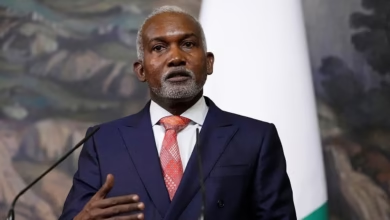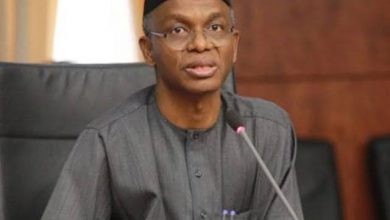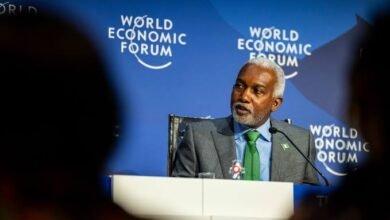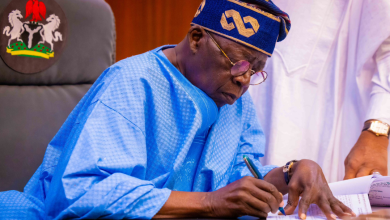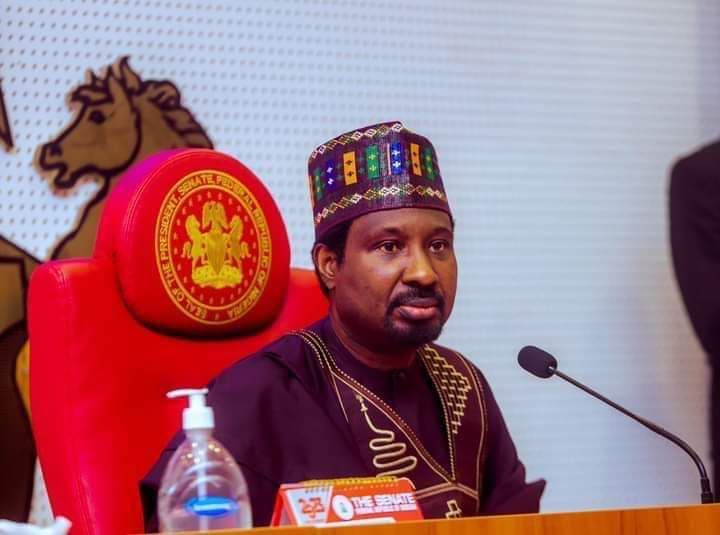
In what many insiders describe as a mix of political insecurity and fear of rivalry, the Deputy Senate President, Senator Barau Jibrin, is reportedly using his influence in the National Assembly to frustrate the confirmation of Engr. Abdullahi Garba Ramat as the substantive Chairman/CEO of the Nigerian Electricity Regulatory Commission (NERC).
Reliable sources within the Senate reveal that Barau’s interference began right from the first day Engr. Ramat appeared before the Senate Committee on Power for screening. Acting through Senator Lado, Barau allegedly moved to stop the process, claiming that Ramat did not possess the required 10 years of experience for the role.
However, the committee swiftly dismissed that claim after confirming that the Electricity Act 2023 does not specify any number of years of experience as a requirement for appointment. In fact, the committee members were reportedly impressed by Ramat’s well-documented achievements, multidisciplinary expertise, and strong leadership background –credentials many agree are more than enough to qualify him even for the position of Minister of Power.
Senate Committee Clears Ramat, But Barau Interferes Again
Despite the attempt to derail the process, the Senate Committee on Power, chaired by Senator Enyinnaya Abaribe (a non-APC member), found Engr. Ramat eminently qualified and recommended him for confirmation alongside nominees for HYPPADEC. The report was listed for consideration on Wednesday, October 22, 2025, but before it could be adopted, Barau allegedly made another move.
According to insider accounts, Senator Barau used his proximity to the Senate President to have Ramat’s confirmation stepped down, allowing only HYPPADEC nominees to be cleared. He reportedly pressured Senator Abaribe to either disqualify Ramat or leave the chamber, forcing the committee chairman to momentarily withdraw, which led to the session being abruptly suspended.
The Real Motive —Fear Born from Political Insecurity
Political insiders believe Senator Barau Jibrin’s hostility toward Engr. Abdullahi Ramat has little to do with qualifications and everything to do with fear of competition –a rivalry that reportedly began the day Engr. Ramat publicly celebrated the birthday of former Governor Engr. Rabiu Musa Kwankwaso.
That single gesture, according to close observers, was interpreted by Barau as a sign of political alignment, even though it was widely seen as a display of respect and goodwill. Since then, Barau has allegedly treated Ramat as a potential rival rather than a professional technocrat, fearing his rising popularity and national recognition.
Engr. Ramat, a young and dynamic technocrat with a spotless record, is known for his integrity, technical depth, and reform-driven mindset. He also enjoys the strong backing of Alhaji Ibrahim Kabir Masari, the Senior Special Assistant to the President on Political & Other Matters, one of the most influential figures in the current administration.
Barau, aware of both Ramat’s growing reputation and Masari’s influence, reportedly views his confirmation as a direct threat to his 2027 governorship ambitions.
A Familiar Pattern of Political Suppression
Observers say this isn’t the first time Senator Barau has used his office to undermine promising politicians from Kano State. His record reveals a consistent pattern of political manipulation aimed at weakening perceived rivals.
1- He allegedly engineered the removal of Abdullahi T. Gwarzo as Minister of State for Housing, replacing him with Hon. Abdullahi Atah, a less influential politician.
2- He reportedly blocked Dr. Nasiru Gawuna and Murtala Garo from securing meaningful federal appointments under President Tinubu’s administration.
3- When Maryam Shatti was offered the position of Managing Director of NWDC, Barau allegedly influenced her removal and replaced her with Prof. Shehu Ma’aji, a political lightweight but loyalist.
4- Earlier this year, he was accused of attempting to remove Hon. Abba Bichi as Chairman of the House Appropriations Committee, claiming he was “romancing the opposition” –though many saw it as an attempt to suppress a rising star.
5- He has also been linked to moves blocking members of the NNPP-led Kwankwasiyya faction from decamping to the APC, fearing that a united Kano APC bloc could undermine his own control of the party’s structure.
The Ramat Factor –A Political Earthquake Waiting to Happen
Many insiders believe that if Barau succeeds in blocking Ramat’s confirmation, it could trigger serious political consequences both in Abuja and Kano. Such a move would almost certainly damage his relationship with Alhaji Ibrahim Masari, who is said to have played a key role in securing Ramat’s nomination.
It would also open a new chapter of political hostility in Kano, where stakeholders are already growing weary of Barau’s tactics of exclusion and control. As one northern lawmaker reportedly remarked:
“Barau has turned politics into personal warfare. Everyone who shines around him becomes an enemy overnight.”
If the situation escalates, many believe it could mark the beginning of Barau’s political decline, as influential figures within the presidency and the APC may begin to distance themselves from what they see as a destructive brand of politics.
What’s at Stake
This unfolding drama goes beyond personalities. It touches on the very integrity of Nigeria’s political and governance process. Engr. Abdullahi Ramat’s nomination represents competence, youth, and reform-minded leadership –qualities Nigeria desperately needs in its power sector. Blocking such a candidate purely for personal reasons would not only undermine meritocracy but also send a dangerous message that ego trumps excellence.
As the Senate prepares to revisit the confirmation list, all eyes are now on the leadership to see whether justice, fairness, and national interest will prevail or whether personal politics will once again overshadow progress.
One thing remains clear: Kano is watching. The Presidency is watching. And history will record who stood for development — and who stood in its way.
Ibrahim Musa is aPolitical Analyst & Columnist. You can reach him at ibrahimmusa.reports@gmail.com

